Filter by
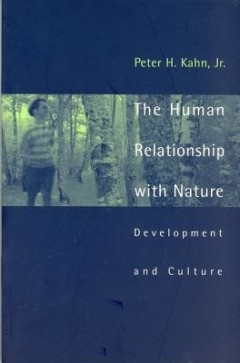
The human relationship with nature : development and culture
Urgent environmental problems call for vigorous research and theory on how humans develop a relationship with nature. In a series of original research projects, Peter Kahn answers this call. For the past eight years, Kahn has studied children, young adults, and parents in diverse geographical locations, ranging from an economically impoverished black community in Houston to a remote village in …
- Edition
- -
- ISBN/ISSN
- 9780585076522
- Collation
- 1 online resource (xiv, 281 pages)
- Series Title
- -
- Call Number
- 306 KAH h

Identity, character, and morality : essays in moral psychology
"[Some essays] were first presented at the conference Character and Morality held at Radcliffe College in April 1988"--Acknowledgements."A Bradford book."Many philosophers believe that normative ethics is in principle independent of psychology. By contrast, the authors of these essays explore the interconnections between psychology and moral theory. They investigate the psychological constraint…
- Edition
- -
- ISBN/ISSN
- 0262272768
- Collation
- 1 online resource (vii, 487 pages)
- Series Title
- -
- Call Number
- 150 IDE
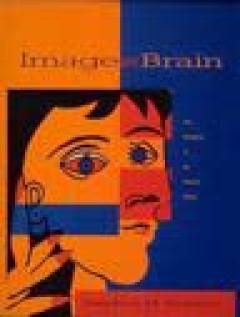
Image and brain : the resolution of the imagery debate
"A Bradford book."Kosslyn (psychology, Harvard U.) presents a 20-year research program on the nature of high-level vision and mental imagery -- offering his research as a definitive resolution of the long-standing "imagery debate," which centers on the nature of the internal representation of visual mental imagery. He combines insights and empirical results from computer vision, neurobiology, a…
- Edition
- -
- ISBN/ISSN
- 9780262277488
- Collation
- 1 online resource (viii, 516 pages) : illustrations
- Series Title
- -
- Call Number
- -
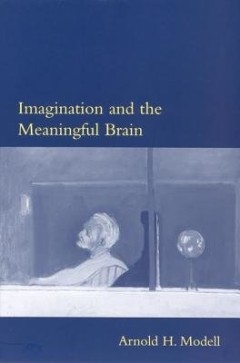
Imagination and the meaningful brain
"A Bradford book."The ultimate goal of the cognitive sciences is to understand how the brain works--how it turns "matter into imagination." In Imagination and the Meaningful Brain, psychoanalyst Arnold Modell claims that subjective human experience must be included in any scientific explanation of how the mind/brain works. Contrary to current attempts to describe mental functioning as a form of…
- Edition
- -
- ISBN/ISSN
- 9780262280044
- Collation
- 1 online resource (xiv, 253 pages)
- Series Title
- Philosophical Psychopathology
- Call Number
- 150 MOD i

Identity and the natural environment :the psychological significance of nature
The often impassioned nature of environmental conflicts can be attributed to the fact that they are bound up with our sense of personal and social identity. Environmental identity--how we orient ourselves to the natural world--leads us to personalize abstract global issues and take action (or not) according to our sense of who we are. We may know about the greenhouse effect--but can we give up …
- Edition
- -
- ISBN/ISSN
- 9780262270465
- Collation
- 1 online resource (vi, 353 pages) : illustrations
- Series Title
- -
- Call Number
- -
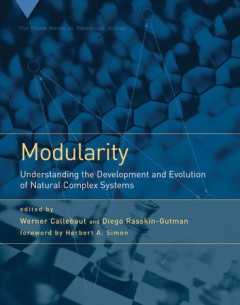
Modularity :understanding the development and evolution of natural complex sy…
Experts from diverse fields, including artificial life, cognitive science, economics, developmental and evolutionary biology, and the arts, discuss modularity.Modularity--the attempt to understand systems as integrations of partially independent and interacting units--is today a dominant theme in the life sciences, cognitive science, and computer science. The concept goes back at least implicit…
- Edition
- -
- ISBN/ISSN
- 9780262269698
- Collation
- 1 online resource (xvi, 455 pages) :illustrations.
- Series Title
- -
- Call Number
- -
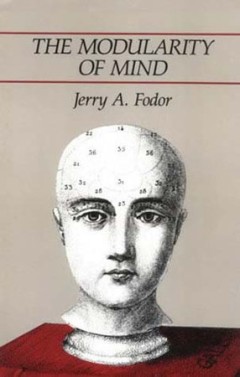
The modularity of mind :an essay on faculty psychology
"A Bradford book."This study synthesizes current information from the various fields of cognitive science in support of a new and exciting theory of mind. Most psychologists study horizontal processes like memory and information flow; Fodor postulates a vertical and modular psychological organization underlying biologically coherent behaviors. This view of mental architecture is consistent with…
- Edition
- -
- ISBN/ISSN
- 9780262315920
- Collation
- 1 online resource (145 pages)
- Series Title
- -
- Call Number
- -
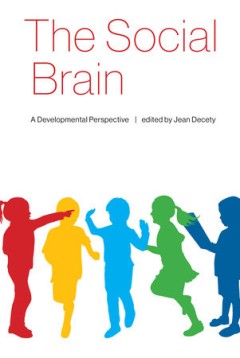
The social brain :a developmental perspective
"This new volume brings together a range of empirical and theoretical views from both developmental psychology and developmental neuroscience, and cover a core set of questions and topics that concern the development of the social mind. The basic topics about the origins, development, and biological bases of the human social mind include, but are not limited to, face and voice recognition, atta…
- Edition
- -
- ISBN/ISSN
- 0262358964
- Collation
- 1 online resource (xii, 426 pages) :illustrations (black and white).
- Series Title
- -
- Call Number
- -
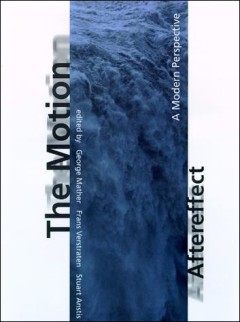
The motion aftereffect :a modern perspective
"A Bradford book."Motion perception lies at the heart of the scientific study of vision. The motion aftereffect (MAE), probably the best-known phenomenon in the study of visual illusions, is the appearance of directional movement of a stationary object or scene after the viewer has been exposed to visual motion in the opposite direction. For example, after one has looked at a waterfall for a pe…
- Edition
- -
- ISBN/ISSN
- 9780262279246
- Collation
- 1 online resource (xii, 220 pages) :illustrations
- Series Title
- -
- Call Number
- -
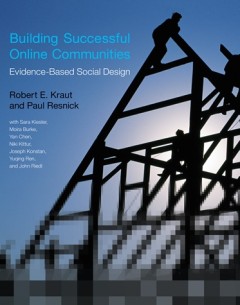
Building successful online communities: Evidence-based social design
Online communities are among the most popular destinations on the Internet, but not all online communities are equally successful. For every flourishing Facebook, there is a moribund Friendster—not to mention the scores of smaller social networking sites that never attracted enough members to be viable. This book offers lessons from theory and empirical research in the social sciences that ca…
- Edition
- -
- ISBN/ISSN
- 9780262298315
- Collation
- 1 online resource (xi, 309 pages) :illustrations
- Series Title
- -
- Call Number
- -
 Computer Science, Information & General Works
Computer Science, Information & General Works  Philosophy & Psychology
Philosophy & Psychology  Religion
Religion  Social Sciences
Social Sciences  Language
Language  Pure Science
Pure Science  Applied Sciences
Applied Sciences  Art & Recreation
Art & Recreation  Literature
Literature  History & Geography
History & Geography